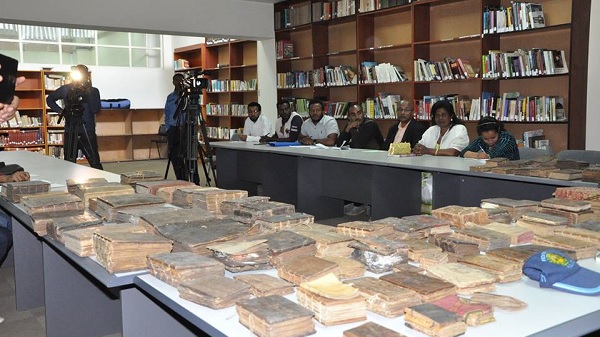
ADDIS ABABA (ENA)– Religious institutions should redouble efforts to protect cultural heritages under their ownership from illicit trafficking, according to the Authority for Research and Conservation of Cultural Heritages (ARCCH).
Cultural Heritage Inventory, Inspection and Grading Director at the Authority, Desalegn Abebe told ENA that most of the heritages taken out of country have been looted from religious institutions.
Every concerned religious institution should, therefore, pay attention to the management and protection of cultural heritages as they are aspects of the identities of the peoples, he added.
Protection of heritages is not something to be left to the authority exclusively but is the collaborative effort of all concerned bodies in general and religious institutions in particular, the Director stressed.
“Heritages may be owned by the government or private parties. However, what matters most is not ownership but the prevention mechanisms that stop the looting of the historical heritages,” he pointed out.
Religious institutions have in particular the responsibility to protect cultural heritages under their custody, Desalegn said, further revealing that about 100 looted religious manuscripts were seized recently as the looters were about to take them abroad.
RELATED: Ethiopia says British museum must permanently return its artifacts
The Director said institutions have to first protect them and report to the police in time when missing.
Senior Cultural Heritage Researcher at ARCCH, Tesfaye Aragie said on his part heritages are manifestations of the identity, culture, and religion of Ethiopians who should steadfastly protect them from looting and mobilize their resources to retrieve looted heritages and treasures.
In addition to protecting the existing heritages from illicit trafficking, collaborative efforts are needed to bring back the heritages looted by countries, groups and individuals, he emphasized.
According to studies, some 3,419 manuscripts were transported abroad by looters. Out of these, 3,056 owned are in the hands of governments and the rest in private hands.
UK, Germany, and France are among the leading countries where most of the Ethiopian manuscripts are taken and displayed.
Despite the persistent efforts exerted for the return of the looted treasures, there is still a need for more collaboration within the country and from the international partners to succeed, Tesfaye urged.
In Ethiopia cultural heritages are legally protected and generally prohibited from being exported by Proclamation number 209/2000.
According to the proclamation, transporting cultural heritages abroad would only be allowed for research and bilateral cultural exchanges with a special permission.
Source: ENA
